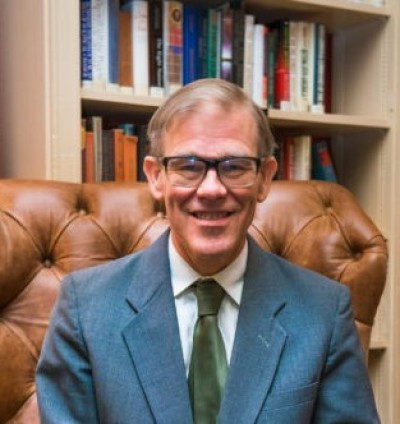Where Religious Liberty Goes from Here: Ryan Anderson and Edward Whelan Discuss

Ryan Anderson, a fellow of the Heritage Foundation, and Edward Whelan, President of the Ethics and Public Policy Center, discussed the prospects for religious liberty in America following the effective gutting of Indiana's Religious Freedom Restoration Act in early April at the Catholic Information Center in Washington, D.C., on April 13. Anderson noted that the New York Times has reported that all big law firms are in favor the Supreme Court imposing same-sex marriage nationally, although there were about the same number of Supreme Court briefs for and against. The key point which is being made in the legal attack on traditional morality is to equate opposition to homosexuality to racism.
Religious liberty only became controversial in the past year in the wake of the Hobby Lobby decision, Anderson said. It might be added however, that it has been a growing problem since the beginning of the Obama administration, with ominous infringements before that. What Anderson and Whelan called "old fashioned liberalism" (that of John Locke, James Madison, and Thomas Jefferson) is being replaced by a "scary" progressivism. In the name of diversity, progressives want uniformity. Under the classical liberal political theory, religion is a good in itself, people have the right to seek the truth, and their religious commitments should be respected as important to their lives. The new progressive understanding is that religion is irrational, impedes progress, and is a problem for society.
As part of the attack on religion, secularists are erasing the distinction between the public and private worlds, according to Anderson. To this end the Obama Administration has been engaged in a war against religious liberty. The war will ultimately come into the church and into families, it was claimed. As an example of this, it was noted that the Johns family in the U.K. was denied resumption of their status as foster parents because of their adherence to Christian morality.
The attack on religious freedom has been made possible, it was claimed, by three historical changes: 1) The increasing assertiveness of the government in regulating life, occasioned by the transition from classical liberalism to progressivism, 2) a changed understanding of freedom of religion as meaning only freedom of worship, and 3) changed sexual mores, which have moved from the traditional Christian morality of sexual relations only between a man and a woman in a lifetime union to an acceptance of sexual relations between consenting adults, and thus a "hollowed out" version of marriage.
As local examples of this, a law recently passed by D.C. City Council said that employers, including religious employers, must hire and retain persons regardless of their beliefs about abortion. Secondly, D.C. City Council recently passed a bill, which repealed the Armstrong Amendment, a Congressional act that prevented religious schools from being required to have LGBT groups on campus. Congress will attempt to override the act, Obama will surely veto the legislation, but the legislative action will be important in future court battles.
What can be done? Anderson said Religious Freedom Restoration Acts (RFRAs) are of limited value; they don't dictate how a court case will be resolved, but do allow defendants to have their day in court and appeal to religious freedom. "Targeted protections" are much better; they specifically say that discrimination on a particular basis (such as beliefs about marriage or abortion) cannot be used by the state to discriminate against individuals.
Anderson and Whelan discussed difference between racial and sexual orientation discrimination. Race is irrelevant to character, but sexual behavior is not irrelevant to character, it speaks to the content of one's character. Thus, Martin Luther King's maxim that people should "not be judged by the color of their skin, but by the content of their character" cannot be applied to sexual behavior. It was observed that "gay libertarians" do exist, who want to protect liberty of conscience, but they are not a driving force in the homosexual community.
It was also pointed out that the "hollowed out" version of marriage resulting from no fault divorce has made same-sex marriage thinkable. It is now easier to legally break a marriage than to break a contract with a plumber. "No fault" divorce is better termed "unilateral divorce." The result is that marriage is thought of as an institution that simply expresses sexual attachment, unrelated to children.
Anderson and Whelan advised against using religion as an antidiscrimination category. Although it legally exists as such, they seemed to indicate that antidiscrimination doctrine has had bad results and needs to be de-emphasized.
The future holds a number of great dangers. One is that Supreme Court Justice Anthony Kennedy will cite "irrational animus" in imposing homosexual marriage nationally, which will have devastating effects on conscience protections against homosexuality. If traditional marriage loses, and about a 50/50 chance was given of that, it is important how it loses, i.e., what the court's reasoning is. Another is that Obama will add additional justices to the Supreme Court; the religious liberty situation will be far different if one of the four conservative justices or Anthony Kennedy is replaced. It was noted that Antonin Scalia is near 80. There will also likely be a liberal Supreme Court if the Democrats win the 2016 election.
In all, Anderson and Whelan outlined a very tenuous future for religious liberty, in which great attention and skill will be needed to substantially preserve the religious liberty Americans have historically known.




























